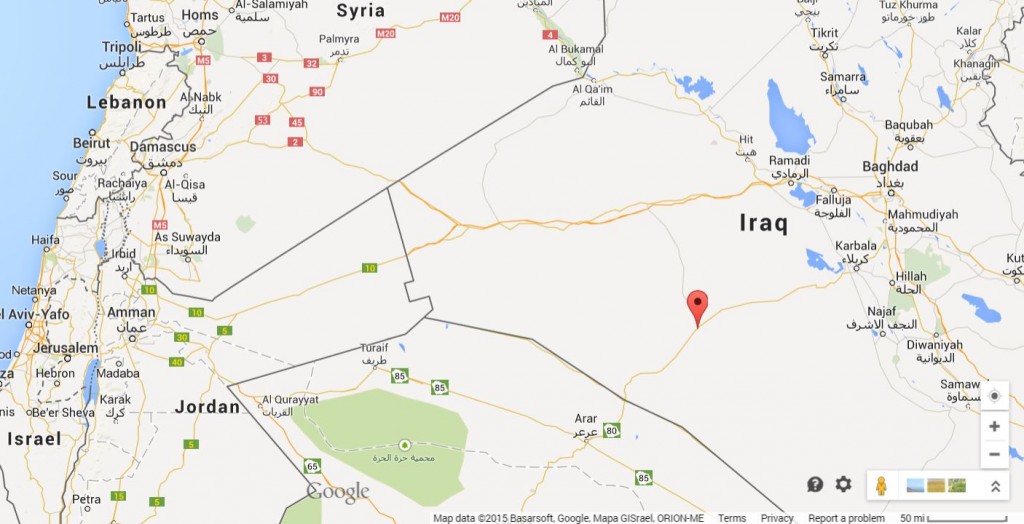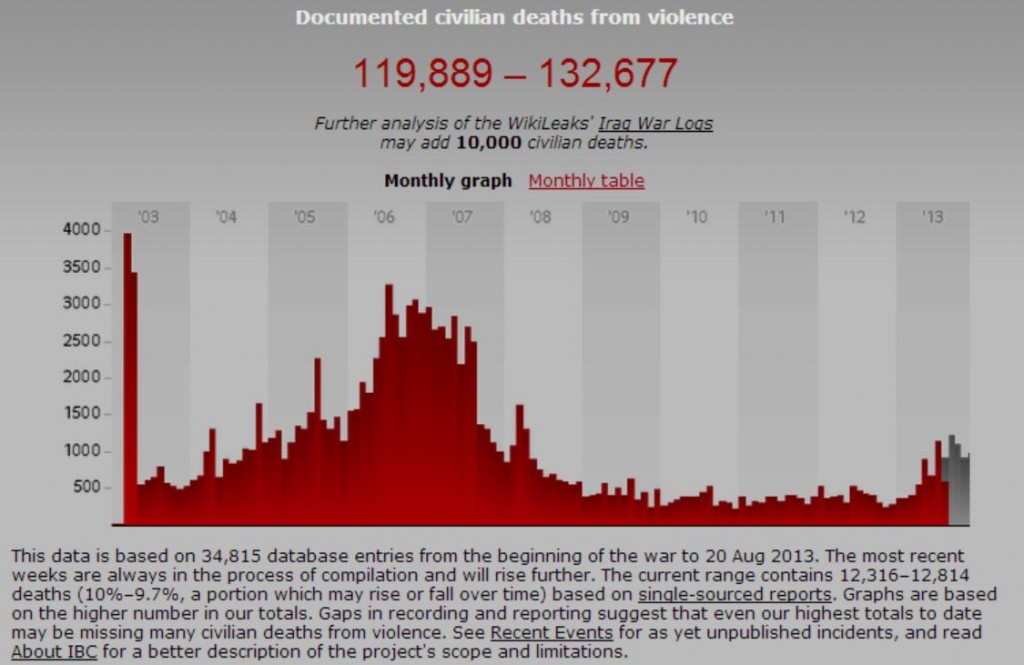The cycle time for the US wiping its collective memory and re-starting a training program for troops aimed against the enemy du jour seems to be getting shorter. While the covert CIA plan to train “moderate” rebels to fight in Syria has not even ended, the new $500 million Obama just got approved by Congress for the military to train rebels is being described almost as if it is the only program around:
Even if the training goes as planned, the rebels will be outnumbered. While the United States has proposed to train and equip 5,000 rebels, the Central Intelligence Agency has said it believes that the Islamic State has between 20,000 and 31,500 fighters in Iraq and Syria.
Elsewhere in that article we do see “This scaled-up training program would be overseen by the Defense Department, unlike the current covert program here and a similar program in Jordan, both overseen by the C.I.A.”, but since the number of fighters trained by the CIA isn’t added to those we plan to train using the military, it would appear that those “fighters” are in the process of fading into the sunset.
With David Petraeus still unavailable to run this PR training program, we are actually seeing hints this time that at least a few of our Congresscritters may be learning that our history of training isn’t exactly stellar and could bode poorly for this effort:
Some lawmakers who voted against Wednesday’s measure argued the administration was moving too fast and did not yet have a feasible plan to arm the Syrian rebels. Rep. Loretta Sanchez (D-Calif.) said it was “pretty disturbing” that Thursday’s hearing was occurring after the House had voted.
“I don’t think the plan that I have seen was detailed enough to make me believe that your plan will work,” Sanchez said. “I hope I am wrong. I hoped the same thing when I voted against the Iraq war that I was wrong, but I don’t believe I was wrong on that.”
Still, the larger focus of Thursday’s hearing shifted from the push for Congress to approve arming and training the Syrian rebels to the future of the U.S. military campaign against ISIL.
Rep. Jackie Walorski (R-Ind.) said she had doubts about the plan and asked Hagel to explain the endgame against ISIL. Rep. Colleen Hanabusa (D-Hawaii) asked about the vetting of forces in Iraq — and not just Syria. And Rep. John Kline (R-Minn.) wanted more details about potential airstrikes in Syria.
Remarkably, the press also is noticing that this effort is ill-fated. From the same NYTimes article linked above:
While the House approved an aid package for the rebels on Wednesday and the Senate followed on Thursday, at present the rebels are a beleaguered lot, far from becoming a force that can take on the fanatical and seasoned fighters of the Islamic State.
What’s more, the Times acknowledges that the “moderates” have different priorities from US goals in Syria:
Short of arms, they are struggling to hold their own against both the military of President Bashar al-Assad and the jihadists of the Islamic State. Their leaders have been the targets of assassination attempts. And some acknowledge that battlefield necessity has put them in the trenches with the Nusra Front, Al Qaeda’s Syrian affiliate, an issue of obvious concern for the United States.
While they long for greater international support and hate the Islamic State, sometimes called ISIS or ISIL, ousting Mr. Assad remains their primary goal, putting them at odds with their American patrons.
As Marcy noted earlier this week, small amounts of recognition of the perverse role of Saudi Arabia in funding global terrorism is also finally creeping into general awareness. Former Florida Governor and Senator Bob Graham has been quite active lately in pushing on that front. In addition to the quote Marcy presented from a Tampa news outlet, there is this from a Patrick Cockburn interview:
Senator Graham, a distinguished elder statesmen who was twice Democratic governor of Florida before spending 18 years in the US Senate, believes that ignoring what Saudi Arabia was doing and treating it as a reliable American ally contributed to the US intelligence services’ failure to identify Isis as a rising power until after it captured Mosul on 10 June. He says that “one reason I think that our intelligence has been less than stellar” is that not enough attention was given to Saudi Arabia’s fostering of al-Qaeda-type jihadi movements, of which Isis is the most notorious and successful. So far the CIA and other intelligence services have faced little criticism in the US for their apparent failure to foresee the explosive expansion of Isis, which now controls an area larger than Great Britain in northern Iraq and eastern Syria.
/snip/
Senator Graham does not suggest that the Saudis are directly running Isis, but that their support for Sunni extremists in Iraq and Syria opened the door to jihadis including Isis. Similar points were made by Sir Richard Dearlove, the former head of the British Secret Intelligence Service, and MI6, who said in a lecture at the Royal United Services Institute in London in July that the Saudi government is “deeply attracted towards any militancy which effectively challenges Shiadom”. He said that rulers of the Kingdom tended to oppose jihadis at home as enemies of the House of Saud, but promote them abroad in the interests of Saudi foreign policy. Anti-Shi’ism has always been at the centre of the Saudi world view, and he quoted Prince Bandar, the ambassador in Washington at the time of 9/11 and later head of Saudi intelligence, as saying to him: “The time is not far off in the Middle East, Richard, when it will be literally ‘God help the Shia’. More than a billion Sunni have simply had enough of them.”
So the long-term position of the Saudis is to promote Sunni jihadists against Shia forces globally. But part of how they avoid US ire is that they play both sides. From the Times article:
So far, the program has focused on a small number of vetted rebel groups from the hundreds that are fighting across Syria, providing them with military and financial help, according to rebel commanders who have received support.
The process is run by intelligence officials from a number of countries. The United States provides overall guidance, while Turkey manages the border, and Persian Gulf states like Saudi Arabia provide much of the funding.
Despite fostering the conditions that led to the formation of ISIS, the Saudis also are helping to fund what can only be described as a doomed before it starts effort to combat ISIS. In the world of terrorism, the Saudis are behaving like a hedge fund, betting on both sides of the ISIS issue. Despite their small position against ISIS in the short term, there is no doubt their long term position is one of radical Sunni jihadism. In fact, since the training is doomed, by helping to fund it, the Saudis are increasing the overall stature of their long term jihadist investment. No matter how much money the US throws at this effort or how many “moderate rebels” it trains, only a fool would believe the Saudis would allow the Syrian rebels and Iraq to defeat a Sunni jihadist movement.


